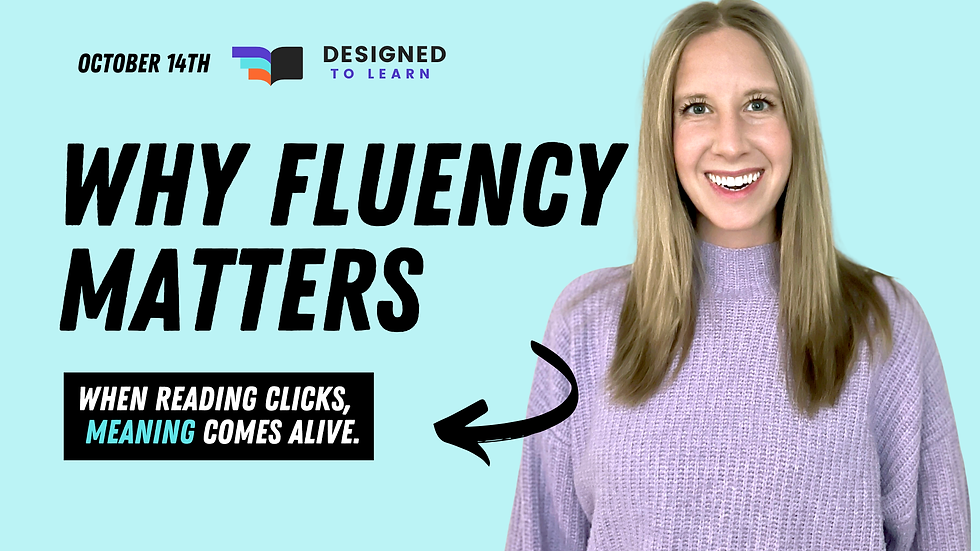Understanding and Supporting Students During Dyslexia Awareness Month
- Designed to Learn

- Oct 10, 2023
- 2 min read
Updated: Oct 27, 2023

October is Dyslexia Awareness Month, a time dedicated to increasing awareness, understanding, and support for individuals with dyslexia. Dyslexia is a common learning difference that affects the way people process language and learn to read, write, and spell, but it's often misunderstood.
Defining Dyslexia:
Dyslexia is neurobiological in origin and affects a person's ability to learn to read, write, and spell. A student with dyslexia does not mean they lack intelligence and motivation-- they just need extra support to make those robust learning connections. In fact, many students with dyslexia often have unique strengths, such as creativity, problem-solving, and lateral thinking, characteristics that are not easily measured in early learning settings.
Albert Einstein, Richard Branson, and Steven Spielberg are just a few people dyslexic innovators who didn't do well in elementary and primary school.

Dyslexia varies in severity and can present differently from one person to another.

Challenges of Dyslexia:
Reading Difficulties: Dyslexic individuals often experience difficulties with accurate and fluent word recognition. They may struggle to decode words and have challenges with phonological processing.
Spelling and Writing: Spelling and writing can also be challenging for people with dyslexia. They may have trouble with spelling rules and organizing their thoughts on paper.
Working Memory: Some individuals with dyslexia have limitations in their working memory, which can make it more challenging to process and remember information.
Sequencing: Some students with dyslexia may have difficulties in organizing thoughts, events, or information in a logical order, affecting tasks such as storytelling, following directions, and understanding cause-and-effect relationships.

Support and Interventions:
Support for individuals with dyslexia is crucial, and there are several strategies and interventions that can make a significant difference:
Early Identification: Early detection and intervention are key. Identifying dyslexia in children allows for timely support and accommodations.
Multi-Sensory Learning: Multisensory approaches to reading, such as Orton-Gillingham-based methods, can be highly effective for teaching individuals with dyslexia.
Assistive Technology: Utilizing assistive technology, like text-to-speech and speech-to-text software, can help dyslexic individuals overcome reading and writing challenges.
Educational Accommodations: Schools and educators can provide accommodations such as extended time for assignments and tests, and access to audiobooks.
Positive Reinforcement: Encouragement, patience, and a focus on dyslexic individuals' strengths can boost their self-esteem and motivation to learn.
Conclusion:
Dyslexia Awareness Month is a time to acknowledge the challenges faced by those with dyslexia and to promote a more inclusive and supportive society. By increasing awareness and offering support, we can help individuals with dyslexia overcome their challenges and tap into their unique strengths, contributing to a more diverse and empowered community. Together, we can make a difference in the lives of those with dyslexia.



Comments